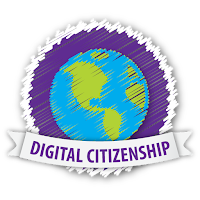Digital Citizenship can be defined as the norms of appropriate, responsible, and respectful behavior with regard to technology use.
Living in this digital era, there are a lot of things that one should know about traversing the complex world of digital materials. Just like the real world, there are now nine listed elements that define what it is to be a responsible digital citizen so, that we can all be safe and make great choices when using technology.
Digital access means full electronic participation in society, which means everyone, is allowed and able to fully/equally participate in technology and understands the limitations and drawbacks when this access is withheld. Example like making everyone access to digital tools including laptops, cameras, and internet.
Digital Commerce:
This refers to purchasing and selling of goodsthrough online (internet). For the people who dislike getting up and going out to interact with other consumers, one can buy and sell online like purchasing and selling items online stores / buying and downloading media through sites like iTunes.
This refers to purchasing and selling of goodsthrough online (internet). For the people who dislike getting up and going out to interact with other consumers, one can buy and sell online like purchasing and selling items online stores / buying and downloading media through sites like iTunes.
3. Digital Communication:
Digital communication refers to how we give and receive information, electronically through email, cellphones, blogs, and also social networking through Facebook and Twitter, instant messaging/texting.
Digital communication refers to how we give and receive information, electronically through email, cellphones, blogs, and also social networking through Facebook and Twitter, instant messaging/texting.
This means the ability to comprehend the use of technology and when to use it. Digital literacy is the most important lifelong learning tool because which allows people to interact and communicate the world around them. As digital citizens, it is our duty to develop and constantly boost our technological knowledge.
This is the ways of conducting oneself being a responsible citizen in a digital atmosphere. Just like in the real world, in order to get along, there must be an expectation of how to behave with other technology users like using technology to reflect the best qualities and codes of conduct, using technology when appropriate, and respecting the privacy and rights of others.
6. Digital Law:
7. Digital Security:
8. Digital Health and Wellness:
These are mainly refers to physical and psychological well-being in a digital world. People say that everything can be bad for us if we used too much, this holds the same truth when using digital technology. We have to balance time spent online with time spent offline to guard against the inherent dangers of technology, and practice eye safety and sound ergonomics while avoiding repetitive stress syndrome, and psychological issues, like internet addiction.
Digital Rights and Responsibilities:
These are mainly refers to the way we should behave and the expectations that are given as a privilege to all handlers of technology. For example like keeping our devices and identities online secure by using safe, private passwords and protecting personal security by managing the personal information posted online.











No comments:
Post a Comment